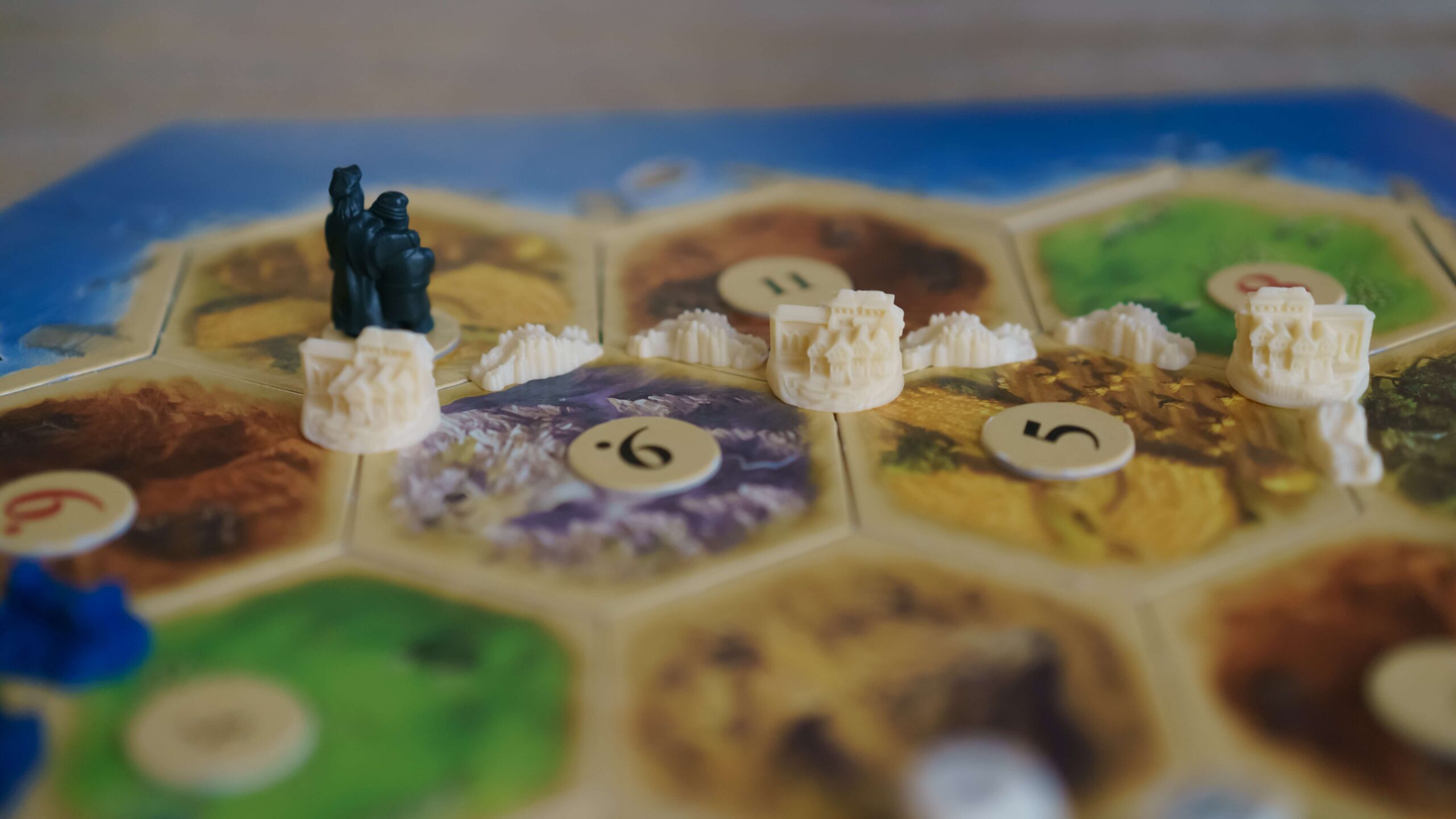In the world of board gaming, a variety of mechanics form the core of each game, dictating how they’re played and enjoyed. Let’s dive into ten of the most popular game mechanics, understanding what they entail, how they are used, and providing examples to illustrate their significance.
Dice Rolling
BoardGameGeek – Dice Rolling Mechanic
Dice rolling is a fundamental board game mechanic that introduces an element of chance and unpredictability into games. Players roll dice to determine outcomes, making it a thrilling addition to various games.
One of the classic examples showcasing dice rolling is Monopoly, where players rely on dice rolls to move their game pieces around the board. In Catan, dice rolls influence resource production, impacting players’ strategies. Additionally, Risk employs dice rolling to resolve battles in its quest for global domination.
Set Collection and Set Building
BoardGameGeek – Set Collection Mechanic
Set collection and set building are mechanics centered around gathering specific cards or resources to create sets or sequences, encouraging strategic planning.
In Ticket to Ride, players aim to collect and complete railway routes across the board. In Splendor, players collect gem cards to build their economic engine, exemplifying the set collection mechanic. Moreover, 7 Wonders challenges players to build their civilizations by drafting sets of cards, showcasing the versatility of this mechanic.
Strategy and Tactics
BoardGameGeek – Strategy and Tactics Mechanic
Strategy and tactics are essential components in many board games, requiring players to devise long-term strategies and employ tactical decisions to outsmart their opponents.
A game like Chess epitomizes strategy and tactics, where players carefully plan their moves to achieve checkmate. For a modern example, Terraforming Mars demands strategic resource management and card play to transform the planet. In addition, Ticket to Ride: Europe adds a strategic twist by introducing ferries and tunnels, making route planning crucial.
Resource Management
BoardGameGeek – Resource Management Mechanic
Resource management games challenge players to efficiently allocate limited resources to achieve objectives, adding a layer of decision-making and planning.
In Carcassonne, players manage tiles to build cities and roads, while in Puerto Rico, careful resource management, including corn and indigo, is crucial for developing settlements effectively. Agricola is another notable example, where players must manage resources to build and expand their farms.
Majority and Voting
BoardGameGeek – Majority and Voting Mechanic
Games featuring majority and voting board games mechanics involve players voting or seeking majority support to make in-game decisions, fostering cooperation and competition.
In The Resistance, players vote to identify spies among them. Codenames combines word association and voting to uncover secret agents, making it a popular party game. Additionally, Sheriff of Nottingham challenges players to use their negotiation skills to decide whether to allow or inspect each other’s goods.
Buying and Auctions
BoardGameGeek – Buying and Auctions Mechanic
Buying and auctions are economic game mechanics where players bid on items and engage in auctions, adding competition for valuable assets.
Power Grid combines resource management and auctions as players bid on power plants. In For Sale, players buy and sell properties through strategic auctions, showcasing how this mechanic influences gameplay. Ra introduces an auction mechanic, where players bid on tiles representing different aspects of ancient Egyptian civilization.
Cooperative Play
BoardGameGeek – Cooperative Play Mechanic
Cooperative board games promote teamwork as players collaborate to overcome challenges within the game, emphasizing the importance of communication and shared goals.
In Pandemic, players cooperate as disease-fighting specialists to contain global outbreaks. Forbidden Island requires adventurers to work together to secure valuable artifacts from a sinking island, highlighting the cooperative play mechanic. Ghost Stories adds an element of supernatural challenge, where players cooperatively defend a village from vengeful spirits.
Area Control
BoardGameGeek – Area Control Mechanic
Area control games emphasize dominating specific regions of the game board, often involving strategic positioning and territorial control.
Risk is a classic area control game where players vie for global domination. In Small World, players conquer and control various regions with unique powers, demonstrating the tactical depth of this mechanic. Blood Rage combines area control with Norse mythology, as players control Viking clans vying for glory.
Character Development
BoardGameGeek – Character Development Mechanic
Character development games allow players to enhance and evolve their in-game characters over time, adding an element of progression.
In Gloomhaven, players take on the roles of mercenaries and develop their characters through branching narratives. Arkham Horror: The Card Game combines deck-building and character progression in a Lovecraftian setting. Mage Knight incorporates character development as players control powerful heroes exploring a fantasy world.
Randomness
BoardGameGeek – Randomness Mechanic
Randomness introduces unpredictability through elements like dice rolls or card draws, making games more dynamic and exciting.
Snakes and Ladders relies on dice rolls to advance, showcasing the role of randomness in a simple yet engaging game. Betrayal at Baldur’s Gate employs event cards to introduce unexpected twists in a haunted mansion setting, illustrating how randomness can shape gameplay. In addition, King of Tokyo adds randomness through the roll of custom dice in a monster battle for control of Tokyo.
Exploring these diverse mechanics allows players to discover games that cater to their preferences, making the world of board gaming a captivating and varied realm.
In the exciting world of board game mechanics, technology plays a crucial role in powering passionate play. You may explore how WordPress enhances the gaming experience, providing a user-friendly platform for enthusiasts to share their love for tabletop adventures. If you are seeking innovative approaches to learning, educational video games have emerged as a powerful tool. Explore how video games become engaging educational companions, adding an element of fun to the learning journey for students of all ages.
Photo by Aksel Fristrup on Unsplash

Leave a Reply